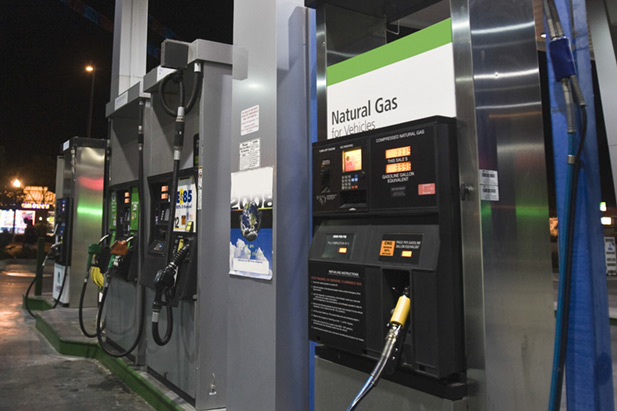UOIT researcher: Natural gas is a key transportation fuel alternative
January 28, 2016

Energy systems and sustainability expert Dr. Dan Hoornweg at the University of Ontario Institute of Technology (UOIT) says natural gas should be part of a much broader approach to transportation in Ontario in the years ahead.
The Ontario Natural Gas Alliance (ONGA) asked Dr. Hoornweg, a Professor with UOIT’s Faculty of Energy Systems and Nuclear Science to provide his expertise for a recent video feature produced by ONGA.
“Some private trucking firms and municipal bus fleets have already transitioned from diesel to liquefied natural gas as a transportation fuel,” he says. “Natural gas is particularly cost-effective in areas of high-volume transportation like Southern Ontario. It is less expensive, burns cleaner and dramatically reduces greenhouse gas emissions.”
Dr. Hoornweg expects carbon pricing in the years ahead will further expedite the shift toward natural gas.
Related links:
- Dr. Hoornweg’s UOIT research profile
- Follow Dr. Hoornweg on Twitter: @UrbanScape
- Ontario Natural Gas Alliance
Media contact
Bryan Oliver
Communications and Marketing
Ontario Tech University
905.721.8668 ext. 6709
289.928.3653
bryan.oliver@uoit.ca



